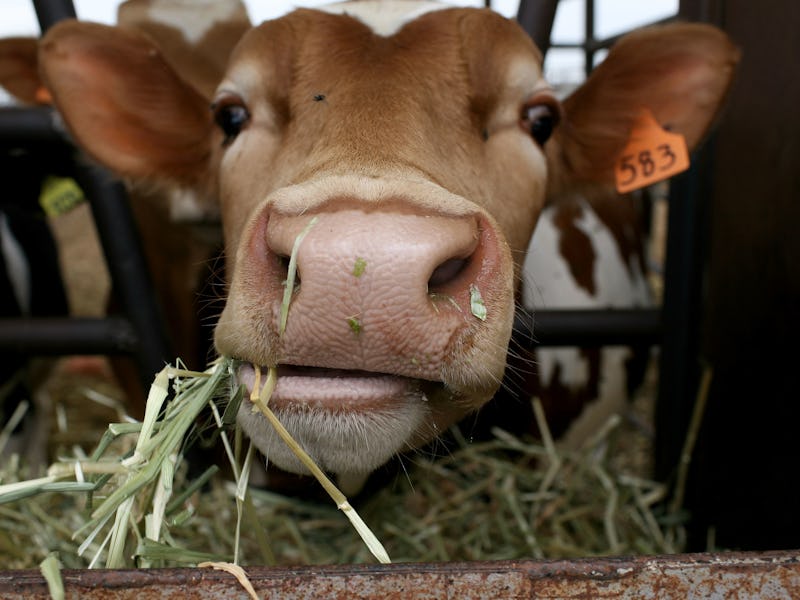Scientists Are Using Seaweed to Reduce Methane Emissions in Cow Farts
The new diet could dramatically reduce the gas output.

A Canadian farmer may have stumbled upon an unlikely weapon in the fight against climate change: seaweed. Prince Edward Island resident, Joe Dorgan, began feeding his cows a diet rich in seaweed eleven years ago as a way to cut costs. He soon discovered that the edible algae not only saved him money, it also made his cows healthier, even eliminating their methane-rich burps and farts.
Cows are smelly creatures, emitting noxious methane gas — which is more toxic than carbon dioxide — into the atmosphere every time they burp or fart. (Which happens A LOT). But they aren’t the only culprits. Sheep are just as bad. In fact, livestock (meaning cows and sheep) are responsible for 14.5 percent of all greenhouse gas emissions each year — and most of that comes from cows.
Methane is about 28 times more effective at trapping solar heat than carbon dioxide is. However, methane doesn’t linger in our atmosphere like carbon dioxide, which means we can see its effects on the environment much sooner.
Cows have four-chambered stomachs, which contain special microbes called methanogens, which basically turn food (usually plant material) into poop and methane, which is expelled via a burp or fart.
Dorgan thought he was only helping out his wallet and his herd, until a researcher named Rob Kinley caught wind of this unusual bovine diet. Dorgan’s seaweed mix included Irish moss, rockweed, and kelp. Kinley used this special mixture to test exactly how it was affecting the cows. His research showed that the special blend reduced the amount of methane gas by 20 percent.
Kinley thought he was just scratching the surface, so he did what any good scientist would do and tested other varieties of seaweed to see which had the biggest effect on methane production. After testing nearly 40 different types of seaweed, he discovered that Asparagopsis taxiformis, a species of red seaweed, nearly eliminated the methane expulsion.
This is all thanks to Bromoform — a compound found in seaweed — that reduces the methane byproduct. A discovery like this could be a game changer when it comes to reducing greenhouse gas emissions. Kinley hopes to be able to convert the seaweed into a marketable food to sell to farmers — a “supergrass” that can cut methane without depriving the cows of essential nutrients.
The environment is a hot button issue right now, with more than 1.5 billion cows in the world. As more people become aware of the environmental issues that surround the agricultural industry, many appear willing to cut back on their meat intake. (Although it’s highly unlikely consumers will cut out meat altogether). With over 1.3 billion people relying on livestock to feed their families, this could be a major blow to some farmers.
If seaweed supplements were readily available, farmers could continue providing a key source of protein to the world, while reducing emissions.